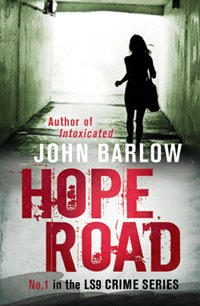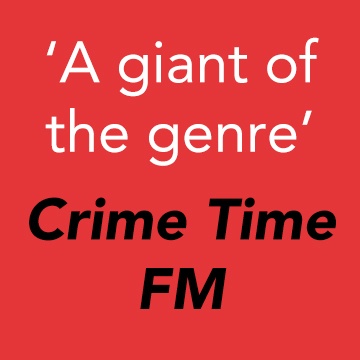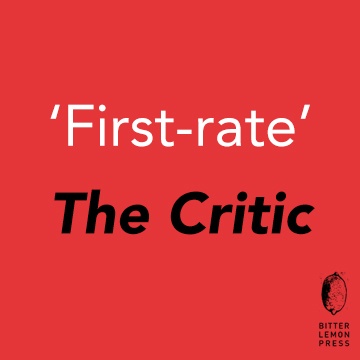 Written by John Barlow — This review is by t-dot — During the course of reading Hope Road – John Barlow’s debut crime novel, though not his fiction debut – I felt it necessary to stop, take a break and begin again. I had charged through the first quarter of the novel, grappling with Barlow’s writing style and failing to connect with the characters or trace the story arch. I didn’t feel the enjoyment and urgency a crime fiction novel normally delivers. More than that, very little seemed to take place in any of the ensemble scenes. No procedure, no deduction; at times it defied understanding of crime fiction altogether. But it definitely had crime in it. A great deal in fact.
Written by John Barlow — This review is by t-dot — During the course of reading Hope Road – John Barlow’s debut crime novel, though not his fiction debut – I felt it necessary to stop, take a break and begin again. I had charged through the first quarter of the novel, grappling with Barlow’s writing style and failing to connect with the characters or trace the story arch. I didn’t feel the enjoyment and urgency a crime fiction novel normally delivers. More than that, very little seemed to take place in any of the ensemble scenes. No procedure, no deduction; at times it defied understanding of crime fiction altogether. But it definitely had crime in it. A great deal in fact.
It was around chapter 31 that I realised I was reading the novel in entirely the wrong light, and doing Barlow a disservice in doing so. Hope Road isn’t a standard police procedural. It’s not set up to be, and Barlow’s writing and characters don’t function in a way that’s conducive to this kind of reading. Unlike the traditional, adrenalin-pumping ride through a criminal underworld that much contemporary crime fiction relies upon, Hope Road is far more literary, and is really the stuff of Great British grit and dark, dark humour. It’s far more cinematic than a McDermid or a Rankin. Read as a cinematic and psychological novel, it is a completely different book. And on second reading I really began to enjoy it.
Hope Road tells the story of Tony Ray, the son of an established gangland boss who has spent his entire life attempting to disassociate himself from his blood ties, and in many ways has succeeded. He makes a living selling cars, is settled and in a relationship with a police detective constable – a situation perfectly poised for disruption.
The novel opens with the discovery of a dead woman in one of Tony’s cars. His friend and colleague is missing and considered to be the suspect in the case – a situation many of Leeds’ criminal associates are either keen to reinforce, or interested in exacting revenge for. Tony isn’t so happy to accept this, and so sets about picking at the threads of the family ties he’s so long tried to break from, picking at the underbelly of the Leeds crime scene, and stumbling into a period of self-discovery and self-involvement that makes for a terrific background to the novel.
But there are elements of conventional crime fiction that keep things ticking along. Barlow provides plenty of twists and turns before the truth is revealed, and Tony is subjected to many dramatic and harrowing scenes before his own personal revelations are made. But what is most enjoyable about Barlow’s writing isn’t his story archs or plotting, but his characters, dialogue and sense of place. Leeds is important to Hope Road; Tony’s journey is absorbing and unexpected; and many of the characters he encounters along the way make for a fascinating study in dark and evil.
Wrapped together, each of these elements doesn’t make for a conventional crime fiction novel, but it makes for a gripping read. As mentioned earlier in this review, there’s something beautifully cinematic about Barlow’s writing, and Hope Road would make a superb film or television adaptation treated with the dark humour, impressive dialogue and lightness Barlow injects it with. While crime fiction lovers might want after something a mite more traditional, obvious and page-turning, you ought to give Barlow a go – it’s a rewarding read.
Storm Books
Kindle/iBook
£1.53
CFL Rating: 3 Stars








